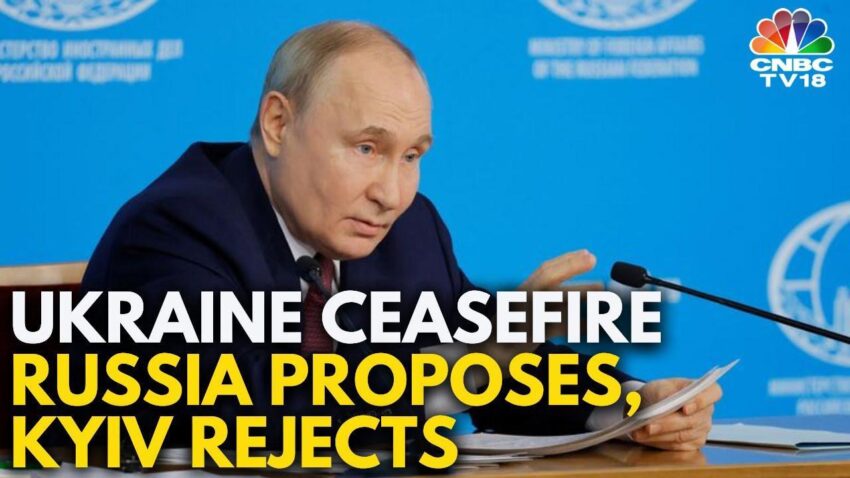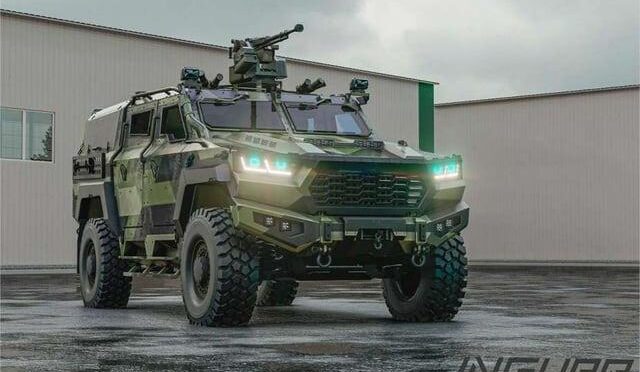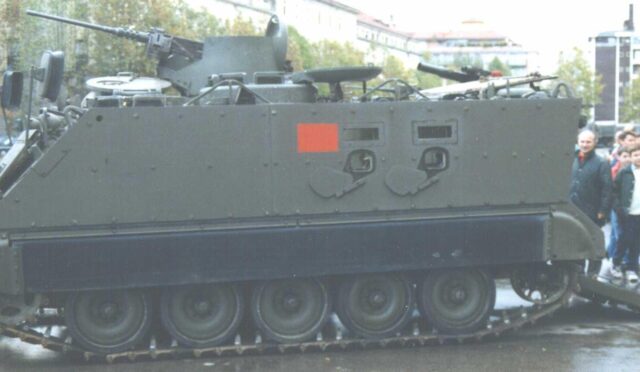Putin Proposes Negotiations to Resolve Ukraine Conflict
In a surprising move, Russian President Vladimir Putin announced on Sunday his willingness to engage in direct negotiations aimed at resolving the ongoing conflict in Ukraine. The proposal comes in the wake of a 30-day ceasefire initiative advocated by Ukraine’s European allies — a concept reportedly backed by the United States. Putin’s call for talks set for May 15 in Istanbul follows a period of stalled discussions, as Ukraine and its European partners had just earlier that day urged for an immediate halt to hostilities.
Speaking from the Kremlin, Putin emphasized that he is open to resuming discussions without any preconditions. This marks a notable shift since negotiations had been put on hold in 2022, following initial talks that failed to secure a cessation of violence. He stated, “We propose to the Kyiv authorities to resume the talks that they abandoned in 2022,” highlighting a determination to find a path toward peace.
Context of the Proposed Negotiations
The backdrop to Putin’s proposal is rooted in ongoing tensions between Russia and Ukraine, which escalated after Russia’s military actions in February 2022. During his address, Putin expressed a commitment to serious negotiations, indicating a desire to address the underlying issues fueling the conflict. He referred to what Moscow terms the “root causes” of discontent as pivotal to establishing a lasting peace.
While Putin remained optimistic about the potential for a renewed ceasefire during these talks, he also took the opportunity to criticize Ukraine’s Western allies. He accused these nations of fostering continuous conflict, hinting that their involvement complicates the prospect for peace. Notably, he refrained from acknowledging the recently proposed 30-day ceasefire by European leaders.
Reactions from European Leaders
In response to Putin’s announcement, French President Emmanuel Macron expressed skepticism, suggesting that the Russian leader’s intentions might simply be to stall for time. This caution came after Macron and other European leaders rallied in Kyiv, where they reinforced their commitment to a 30-day ceasefire initiative — a plan they declared would commence without preconditions.
Macron remarked, “An unconditional ceasefire is not preceded by negotiations, by definition,” emphasizing that any sincere attempt at peace should not involve negotiation delays. The European coalition’s stance is reinforced by the threat of imminent sanctions should Russia reject their ceasefire proposal.
Support for Ceasefire from Allies
During their conference in Kyiv, European leaders, alongside Ukrainian President Volodymyr Zelensky, pressed Russia to accept the proposed ceasefire, warning of potential repercussions if ignored. Macron announced, “We have just now decided to support a ceasefire, which will begin next Monday, without any preconditions,” signaling unified support among allies for Ukraine.
The coalition of nations, including the United States, has been working towards this proposal for weeks, demonstrating a collective commitment to peace. Macron also indicated that the ceasefire would be monitored primarily by American forces, with European nations contributing to oversight.
Diplomatic Dynamics and Challenges Ahead
The diplomatic landscape remains complex, with rising tensions as leaders like Trump express frustration over stalled negotiations. Trump recently indicated dissatisfaction with the current state of talks, reiterating his aspirational goal to resolve the conflict promptly.
From the other side of the aisle, UK Prime Minister Keir Starmer emphasized the unified front presented by allied nations, reinforcing the gravity of the proposed ceasefire. This unity was reflected in a productive update call with Trump, fostering a sense that the international community is rallying together for proactive peace efforts.
Putin’s Defiant Stance
Despite overtures for dialogue, Putin’s recent rhetoric following a commemoration of WWII victories reveals a more hardened stance. Only a day prior, he announced a unilateral three-day truce, which observers noted had little impact on the persistent violence.
The Ukrainian army reported that the intensity of the fighting remained unchanged, illustrating the challenges ahead not only for the proposed negotiations but also for establishing a credible ceasefire. This juxtaposition of diplomatic highlights against the backdrop of ongoing conflict underscores the difficulty in navigating a pathway to peace.







